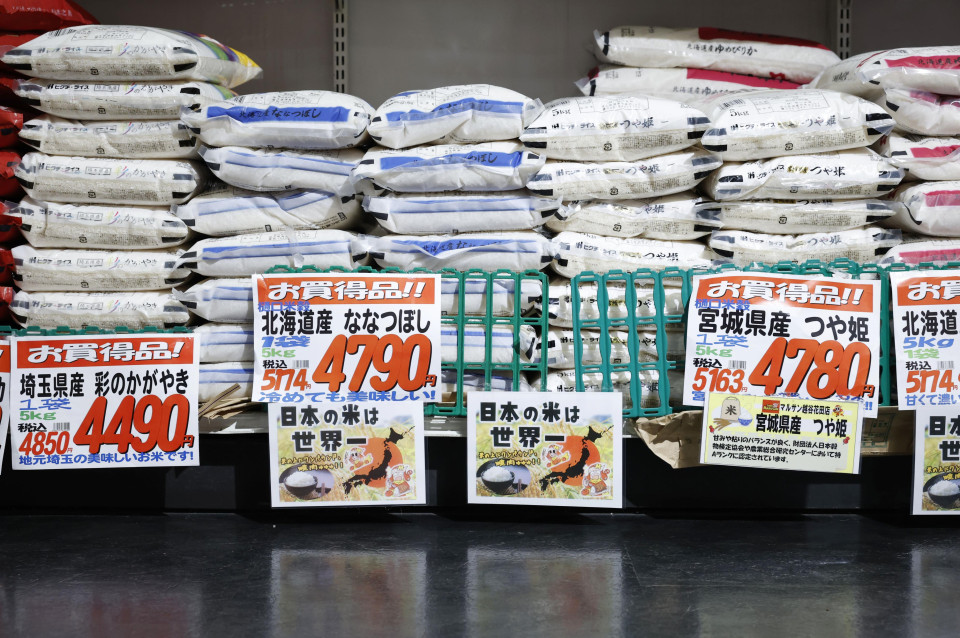The Japanese government is considering roughly doubling the supply of stockpiled rice to about 600,000 tons, as rice prices remain at near record highs amid a shortfall, sources close to the matter said Thursday.
The government is studying releasing 300,000 tons of reserve rice over three months through July, in addition to 321,000 tons auctioned in three tranches between March and April.
If the government goes ahead with the additional release, its stockpile will be down to around 300,000 tons, about a third of what is generally regarded as the appropriate reserve level. That may raise concerns over how the government will respond if there is another poor harvest due to a natural disaster or bad weather.

Bags of rice are sold at a supermarket in Koshigaya, Saitama Prefecture, on April 21, 2025. (Kyodo)
Average rice prices continued rising to record highs before falling for the first time in 18 weeks in the week through May 4.
Farm ministry data showed that the total amount of rice secured by major distributors as of the end of January was down 230,000 tons from a year earlier, worse than the decline of 210,000 tons at the end of December.
The declines come despite an increase in the 2024 rice harvest of 180,000 tons from a year earlier to 6.79 million tons.
The ministry suspects wholesalers and farmers are hoarding rice in anticipation of price hikes.
Japan faced a drop in rice distribution after high temperatures in the summer of 2023, while rice consumption increased at restaurants following a surge in foreign tourists.
Given the law on use of stockpiled rice only mentions sharp production falls as a reason for releasing it, the Ministry of Agriculture, Forestry and Fisheries was initially cautious about doing so.
But the ministry decided on the release on the condition that the same amount of rice is bought back, in principle, within a year.
The government and some lawmakers of the ruling Liberal Democratic Party are considering relaxing the buyback requirement, as the rule is seen as discouraging rice distributors from participating in auctions out of fear that they may not be able to sell rice back if they face a potential shortage.
The removal of the requirement should help more participants in auctions, LDP policy chief Itsunori Onodera told reporters on Wednesday after inspecting a warehouse in Saitama, near Tokyo, where reserved rice is stored.
Related coverage:
Japan rice prices fall for 1st time in 18 weeks amid gov’t measures
Gold investments booming in Japan as U.S. tariffs stir economic fears

AloJapan.com